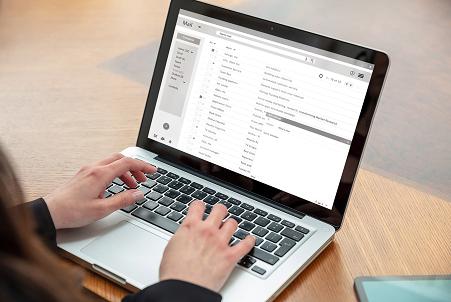Our customers have been hired at: *Foot Note
Table of Contents
Get started with MyPerfectResume today!
- Build a resume on any device
- Pick an ATS-friendly template
- Tailor with AI copy suggestions
Interviews can be nerve-wracking, but they don’t have to be. With some preparation and practice, you can ace any behavioral interview and land the job you want.
Behavioral interview questions ask you to reflect on your past experiences, helping employers understand how you think, communicate, and navigate real-world challenges.
In this guide, you’ll find common behavior-based interview questions, sample answers, and tips for crafting standout responses to make a strong impression in your next job interview.
What Are Behavioral Interview Questions?
Behavioral interview questions are prompts that ask you to describe how you handled real-life situations in the past, allowing employers to predict how you’ll perform in the future.
They often start with phrases like:
- “Tell me about a time when…”
- “Give me an example of…”
- “Describe a situation where…”
While employers may ask behavioral questions in any round of interviews, they’re typically used in later rounds once you’ve passed initial screening with an HR representative or recruiter.
Unlike situational interview questions, which ask what you would do in hypothetical scenarios, behavioral interview questions focus on what you have done in past roles.
Because these questions rely on real examples, preparing for them with clear, structured stories is essential for giving confident, compelling answers that demonstrate your skills and impact.
Top Behavioral Interview Questions and Answers
Below, you’ll find the most common behavioral interview questions and examples of effective answers to help you structure your own responses.
Tell me about a time when you faced a challenging situation at work. How did you handle it?
This is a common behavioral interview question that allows employers to understand how you respond to difficult or stressful situations. They are assessing your problem-solving approach, resilience, and ability to stay calm under pressure.
Sample answer
“At my previous job, our team faced a tight deadline for a major client project, and several key tasks were delayed due to unexpected software issues.
I stepped in to reorganize the workflow, reassigned tasks based on team members’ strengths, and coordinated daily check-ins to track progress. By streamlining communication and closely monitoring progress, we completed the project three days ahead of schedule and achieved a client satisfaction score of 95%, which was the highest for that quarter.”
Describe a time when you had to work closely with someone whose personality or work style was very different from yours.
In most workplaces, you’ll need to work with colleagues who have different communication styles and approaches to problem-solving.
Hiring managers want to see that you can navigate these differences effectively, using your interpersonal skills to maintain positive working relationships.
Sample answer
“As a software engineer, I was assigned to a project with a colleague whose work style was very detail-oriented, while I tend to focus on big-picture planning.
Initially, our different approaches led to some miscommunication and duplicated efforts. To address this, I scheduled regular check-ins to align on priorities, created a shared task tracker, and established clear guidelines for providing updates and feedback.
By leveraging our complementary strengths, we were able to complete a critical software module two weeks ahead of schedule, reduce coding errors by 30%, and deliver a smoother handoff to the QA team. Our collaboration not only improved the project outcome but also strengthened our working relationship for future projects.”
Tell me about a time when you had to lead a team or project.
This is a typical behavioral interview question for managerial or leadership roles. Similar to other common interview questions for managers, employers ask this question to assess your ability to take initiative, delegate tasks effectively, and motivate team members.
Sample answer
“As a marketing manager, I was tasked with leading a team to launch a new product within a tight three-month timeline. I began by clearly defining each team member’s responsibilities and setting milestones to track progress. To keep everyone aligned, I held weekly check-ins and encouraged open communication to address any obstacles early.
Midway through the project, we encountered unexpected delays from our design team, so I reallocated resources and adjusted priorities to stay on schedule.
By maintaining focus and fostering collaboration, we successfully launched the product two weeks ahead of schedule, resulting in a 15% higher-than-expected initial sales volume and positive feedback from both clients and leadership.”
Tell me about a time when you had multiple priorities or deadlines. How did you manage them?
This behavioral interview question helps employers evaluate your time management, organization, and prioritization skills. They want to see how you stay focused under pressure to ensure important deadlines are met without sacrificing quality.
Sample answer
“In my previous role, I was managing three client campaigns that all had overlapping deadlines. To stay on top of priorities, I created a detailed schedule that broke each project into tasks with clear deadlines and assigned responsibilities.
I held brief daily check-ins with team members to monitor progress and quickly address any bottlenecks. By staying organized and maintaining open communication, I was able to deliver all three campaigns on time, with two exceeding client expectations and generating a 20% increase in engagement compared to previous campaigns.”
Describe a situation where you made a mistake at work. What did you learn from it?
Hiring managers ask this question to see that you can acknowledge mistakes, take responsibility, and implement corrective actions to prevent similar issues in the future.
This behavioral interview question also helps interviewers gauge your resilience, self-awareness, and growth mindset, which are essential qualities in any role.
Sample answer
“As a customer support specialist, I once accidentally sent incorrect billing information to a client, which caused confusion and a delay in their payment.
As soon as I realized the mistake, I immediately notified my manager, contacted the client to clarify the issue, and corrected the billing details. I also implemented a checklist system for all outgoing invoices to prevent similar errors in the future.
As a result, we eliminated billing errors for the next quarter and received positive feedback from the client for quickly resolving the situation.”
Share an example of a time when you went above and beyond responsibilities.
This behavior-based interview question evaluates your initiative, work ethic, and commitment to delivering exceptional results. Employers want to see whether you’re willing to take extra steps to achieve goals, support your team, or improve processes beyond what’s expected.
Sample answer
“In my previous role as a sales associate, I noticed that our monthly client reporting process was causing delays in follow-up communications. Although it wasn’t part of my assigned responsibilities, I took the initiative to create an automated tracking system that streamlined report generation and highlighted key client actions.
This allowed the team to respond more quickly and efficiently. Within two months, our client response time improved by 40%, and overall client satisfaction scores increased by 25%, earning recognition from my manager for proactive problem-solving.”
Give an example of a disagreement or conflict at work and how you resolved it. What did you learn in the process?
Employers ask this question to assess your communication skills and ability to handle disagreements professionally without escalating tension.
Your answer also demonstrates your self-awareness and ability to learn from experience, showing that you can turn conflicts into opportunities for growth and collaboration.
Sample answer
“As a marketing coordinator, I once disagreed with a colleague on the direction of a social media campaign. While they wanted to focus solely on paid ads, I believed a combined strategy including organic content would yield better long-term engagement.
I scheduled a one-on-one meeting to discuss our perspectives, presented data to support my approach, and actively listened to their concerns. Together, we developed a hybrid strategy that incorporated both paid and organic tactics. The campaign ultimately increased engagement by 25% and boosted website traffic by 18% over the previous month.
Through this experience, I learned the importance of open communication, collaboration, and using data to resolve disagreements constructively.”
Tell me about a time when you had to adapt to a significant change or unexpected circumstances at work.
Today’s workplaces change quickly, and hiring managers need someone who can stay productive and positive during uncertainty.
This question assesses your problem-solving skills and adaptability when priorities shift, new tools roll out, and teams reorganize. Your answer reveals your attitude toward change and your ability to learn from challenges, both of which are essential in almost any job.
Sample answer
“During a major project at my last job, our team was informed halfway through that the client wanted to shift the project’s direction and add several new requirements. This change significantly altered our timeline and workload, so I quickly reassessed our priorities and broke down the new tasks to determine what needed attention first.
I communicated the updates to the team, delegated responsibilities based on everyone’s strengths, and created a revised schedule that kept us on track without overwhelming anyone. By staying flexible and focused, we were able to deliver the updated project on time, and the client ended up expanding the contract because they were impressed with how smoothly we handled the transition.”
Describe a time when you received constructive criticism. How did you handle it?
Employers ask this behavioral interview question to evaluate how you respond to feedback. Your response helps them understand your openness to learning and ability to self-reflect.
It also reveals whether you can hear feedback without becoming defensive, use it to improve your performance, and maintain positive relationships with colleagues or supervisors.
Sample answer
“At my previous job, my manager pointed out that my reports, while accurate, were sometimes too detailed for the audience, which made them harder to digest quickly.
At first, I was a little surprised, but I took the feedback seriously and asked for specific examples of how to make the reports clearer. I then revised my approach by summarizing key points at the top and using visuals to highlight important data. My manager noticed the improvement, and other team members mentioned that the reports were much easier to use.
Receiving that constructive criticism helped me communicate more effectively and strengthened my ability to take feedback positively and turn it into actionable improvements.”
Share an example of a time when you took initiative to solve a problem or improve a process.
Hiring managers ask this question because they want to see whether you are proactive rather than waiting for direction. Strong responses reveal an ability to go beyond basic responsibilities, demonstrating leadership potential and a results-oriented mindset.
Sample answer
“At my previous position as an administrative assistant, I noticed that our team was spending a lot of time manually tracking inventory for office supplies, which often led to delays and shortages. I took the initiative to research and implement a simple digital tracking system that automatically updated stock levels and alerted us when items were running low.
After introducing the system, our team was able to maintain supplies more efficiently, reduce ordering errors, and save several hours each week that were previously spent on manual tracking. My supervisor appreciated the improvement, and the process was eventually adopted across other departments as well.”
We recommend exploring our guide on how to prepare for an interview for detailed tips on preparing for different interview formats and answering frequently asked questions.
Common Behavioral Interview Questions by Skill Set
Explore additional behavioral interview questions that employers often ask. We’ve organized them by skill set to help you prepare thoughtful responses that highlight the strengths and qualities employers are looking for in candidates.
Teamwork and collaboration
Employers often ask questions about teamwork and collaboration to see how well you work with others, handle differing opinions, and contribute to group success.
Consider these common questions as you prepare examples that highlight your ability to support, communicate with, and positively influence a team:
- Describe a time you supported a team member who was struggling to complete their part of a project or task.
- Share an example of when you collaborated with a cross-functional or remote team.
- Tell me about a situation where you helped build consensus within a group with differing opinions.
- Give an example of when you had to adjust your approach based on team feedback.
- Tell me about a time when your team didn’t meet expectations. What role did you play in improving future performance?
- Can you provide an example of a time when you contributed to team culture or success?
Problem-solving and critical thinking
Employers ask questions about problem-solving and critical thinking skills to understand how you approach challenges, evaluate options, and make informed decisions.
- Describe a situation where you developed a creative or unconventional solution.
- Tell me about a time when a solution you suggested did not work and what you did next.
- Share an example of testing, piloting, or iterating on a solution before full implementation.
- Tell me about a time you identified a root cause rather than treating a symptom.
- Share an example of when you had to analyze data or feedback to make a decision.
- Describe a situation when you had to choose between multiple viable solutions.
Communication and conflict-resolution
Questions about communication and conflict resolution skills help hiring managers evaluate how effectively you convey information, navigate misunderstandings, and resolve disagreements.
Prepare responses to questions that assess your ability to communicate clearly and maintain positive working relationships, for example:
- Describe a situation where you had to communicate under pressure or with limited time.
- Tell me about a time you had to simplify complex information for someone unfamiliar with the topic.
- Share an example of when you actively practiced listening to resolve an issue.
- Describe a time in which you used written communication to make a point.
- Tell me about a time you improved communication among team members or stakeholders.
- Describe a time when you had to clarify miscommunication before it escalated.
Adaptability and learning process
Hiring managers ask questions about adaptability and your learning process to understand how you handle change, acquire new skills, and grow from experience. Here are a few examples of questions related to flexibility and willingness to learn:
- Tell me about a time you had to quickly learn a new skill or tool to complete a task.
- Describe a time when you adapted your work style based on new expectations or leadership changes.
- Share an example of when you embraced a new process or technology, even if it felt uncomfortable.
- Tell me about a time you successfully managed ambiguity or incomplete direction.
- Describe a situation where you sought out training, coaching, or mentorship.
- Share an example of how you applied lessons learned from a failure to future work.
Leadership and initiative
Hiring managers often ask behavioral leadership interview questions designed to assess how you guide others and drive positive business outcomes. Here are a few examples:
- Tell me about a time you influenced positive change without a formal leadership title.
- Describe a situation where you coached, trained, or mentored someone.
- Share an example of when you stepped up to lead during an unexpected challenge or absence.
- Tell me about a time you set clear expectations and held others accountable.
- Describe a situation where you advocated for fairness, inclusion, or ethical decision-making.
- Share an example of recognizing and celebrating someone else’s success.
Time management and ownership
Employers often ask questions about time management skills and ownership to see how you prioritize tasks, stay organized, and take responsibility for your work.
The following questions are often asked to evaluate your ability to manage deadlines, optimize processes, and proactively address challenges:
- Tell me about a time you improved a workflow, process, or system to save time.
- Share an example of when you proactively monitored progress to avoid delays.
- Describe a situation where you had to prioritize quality versus speed, and how you decided.
- Tell me about a time when you communicated early risks or timeline challenges.
- Describe a situation where you reorganized your work after unexpected changes.
- Share an example of planning to avoid last-minute work.
Achievements and professional growth
Hiring managers often ask questions about achievements and professional growth to understand how you set goals, measure success, and continually improve your performance.
Use these prompts to prepare examples that showcase your accomplishments and demonstrate how you turn curiosity and feedback into tangible results:
- Tell me about a time you accomplished something others thought was difficult or unlikely.
- Describe a situation where you voluntarily raised your performance standards.
- Share an example of how you tracked or measured your own improvement.
- Tell me about a time you leveraged feedback to achieve better results.
- Describe a project or achievement that required learning beyond your normal duties.
- Share an example of how you turned curiosity into concrete, measurable outcomes.
If you’re early in your career or changing fields, you may not have direct experience for every behavioral question. Focus on transferable skills you’ve developed through school projects, volunteer work, or internships.
How to Answer Behavioral Interview Questions
To answer behavioral interview questions, use the STAR method (Situation, Task, Action, Result) to provide specific, structured examples that demonstrate your impact:
- Situation: Set the context for your story. Briefly describe the challenge, project, or circumstances.
- Task: Explain your specific responsibility or goal within that situation.
- Action: Describe the steps you took to address the challenge, solve the problem, or achieve the goal. Focus on your contributions rather than the team’s overall efforts.
- Result: Share the outcome of your actions, highlighting measurable achievements whenever possible. Include what you learned or how you improved processes.
Using the STAR method ensures your answers are organized, relevant, and results-oriented, making it easier for hiring managers to understand your strengths and the value you bring.
Tips for a Successful Behavioral Interview
- Research the role and company. Learn about the company’s mission, values, and the position’s responsibilities. This allows you to anticipate the types of behavioral questions they might ask and tailor your examples to align with the qualities they value most.
- Highlight your contributions. Even when discussing team projects, emphasize your specific actions and impact. Employers want to see what you personally did to achieve results, so they can visualize how you might contribute to their team.
- Be specific and quantify results. Whenever possible, include measurable outcomes, such as “increased efficiency by 20%” or “completed the project two weeks ahead of schedule.” Specific results make your contributions tangible.
- Practice out loud. Rehearse your answers aloud to build confidence and ensure your examples fit into a concise one- to two-minute answer. Deliver behavioral interview responses like a short story with a clear beginning, middle, and end to avoid rambling.
- Stay positive and professional. Even when discussing challenges or failures, focus on what you learned, how you improved, and how you turned the situation into a positive outcome. This demonstrates resilience, accountability, and a growth mindset.
- Be honest and leverage transferable skills. Never fabricate an experience. If you lack a direct example or work experience, you can draw on transferable skills from school, volunteer work, internships, or part-time jobs.
Key Takeaways
- Behavioral questions reveal real-world skills. Employers use them to understand how you handle challenges, work with others, and make decisions.
- Preparation is essential. Review common questions, organize your experiences, and practice using the STAR method to provide clear, structured answers.
- Highlight your contributions and results. Focus on your personal role, actions, and measurable outcomes, even in team situations.
- Reflect, learn, and stay positive. Use examples that showcase your growth, adaptability, and ability to turn challenges into successes.
FAQ
What is the best way to prepare for a behavioral interview?
The best way to prepare for a behavioral questions interview is to review common behavioral questions, reflect on your past experiences, and prepare thoughtful, structured responses.
When reviewing examples of behavioral interview questions and practicing your responses, focus on your personal contributions and the measurable outcomes you achieved.
Think about situations involving teamwork, problem-solving, leadership, adaptability, and communication. Prepare multiple examples so you can adapt them to different questions.
If you’re preparing for a video interview, test your technology in advance. Remember that you can pause briefly before answering questions to give yourself time to think and respond clearly.
What is the STAR method for answering interview questions?
The STAR method (Situation, Task, Action, and Result) is a structured approach to answering behavioral interview questions, helping you provide clear, impactful responses.
When answering STAR format interview questions, begin by describing the situation or context you faced, then explain the task or responsibility you were assigned.
Next, detail the actions you took to address the challenge, focusing on your individual contributions, and finish by sharing the result, highlighting measurable outcomes, lessons learned, or improvements made.
Using the STAR method ensures your answers are organized and results-oriented, making it easier for interviewers to understand your skills, decision-making, and accomplishments.
Do behavioral interview answers need to include measurable results?
Including measurable accomplishments in your behavioral interview answers is highly recommended whenever possible. Quantifiable outcomes, such as percentages, timelines, or concrete improvements, help interviewers understand the impact of your actions.
For example, saying you “improved team efficiency by 15%” or “increased customer satisfaction scores by 10 points” clearly demonstrates your effectiveness.
While not every situation will have exact numbers, aim to highlight results in some form, whether it’s positive feedback, process improvements, or lessons learned, to show the real-world value of your work.
How do I answer behavioral interview questions without work experience?
If you don’t have direct work experience, you can still answer behavioral interview questions effectively by discussing transferable skills from school projects, internships, or volunteer work.
Focus on situations where you demonstrated skills such as communication, teamwork, problem-solving, time management, or leadership. Use the STAR method to structure your answers, emphasizing your actions and the results you achieved.
This approach allows you to provide thoughtful, relevant responses to common interview questions, whether behavioral or general, demonstrating to employers that you have the abilities and mindset to succeed in the role.
How we reviewed this article
Since 2012, we have helped more than 11 million job seekers. We want to make your career journey accessible and manageable through our services and Career Center’s how-to guides and tips. In our commitment to bring you a transparent process, we present our Editorial Process.
Our customers have been hired at:*Foot Note














